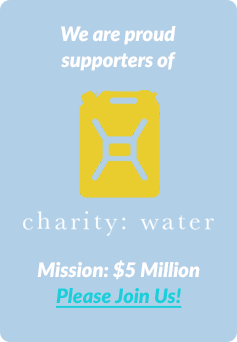This year marked my five-year fiddle anniversary.
It was five years ago when I walked into a music shop and asked, “Do you offer fiddle lessons?” I was standing in a room filled with beautiful string instruments and felt like a stranger in a strange land. I had little music experience beyond some lessons in elementary school.
I’ve loved Irish fiddle music for years and wanted to learn how to play. The music shop set me up for lessons and it soon became clear to me how challenging it is for a novice to learn.
Looking back on the past five years with my fiddle, I realized I’ve learned much more than how to make music – these lessons apply to anything we take on that turns out to be more difficult than we expected.
1. Ignorance is bliss
When I walked into the music store, I had no idea what it would be like to learn the fiddle. I’ve watched accomplished fiddlers play and it looks easy. Little did I know.
There is nothing natural about the position in which one holds the instrument. There is no margin for error – a slightly misplaced finger sends a note out of tune. Bow technique is surprisingly nuanced. If I had known how challenging it would be I might never have started.
2. Find a teacher
While there are many resources available online, there is nothing more effective than working with a teacher. When you are learning on your own, it’s easy to develop a bad habit you don’t know you have.
A good teacher will meet you where you are in your learning, guide you to proper technique and, very importantly, nudge you out of your comfort zone so you can stretch and grow.
3. Do it imperfectly
If you tend to be a perfectionist, this is a big step.
When you are learning something new, you are not going to be good at it. Be willing to mess up and try again. This is where the learning happens. Mistakes are not failure – they are feedback. They are not about who you are, they are pointing you toward where to focus your attention.
4. Compare = despair
Do not compare yourself to others if doing so creates any sense of inadequacy (such as I can’t do this or I’m not as good as them). Comparing your inside to someone else’s outside is a fast track to despair. This is your journey at your pace.
If compare-despair creeps in and you feel deflated, remember why you started. For me, it’s because I love the music, it makes me happy when I hear it and I want to be able to play music for myself and others. Let your “why” inspire you and rekindle your motivation.
5. Stick with it
There’s no way around it – you can’t cheat, skip or rush the learning. It’s not a surprise that practice is important. Developing a new skill requires repetition. What I found is how much and how little makes a difference.
First, the “how much” – the more you practice the more you learn. The challenge is integrating practice into a busy schedule of work and life responsibilities. It takes showing up regularly.
That showing up to practice? This is the “how little” – you can do your thing for only five minutes at a time if that’s all the time you have. Really.
Progress happens when you practice and it happens in between practice sessions as the incremental learning is integrated in your brain. You will improve, even when you are taking tiny baby steps (like practicing for a few minutes at a time) when you stick with it.
6. Celebrate success
When you are outside your comfort zone, learning something new and doing it imperfectly, you can be blind to your accomplishments – only seeing what you haven’t yet mastered.
Take the time to celebrate your successes. When you accomplish something you’ve been working on, acknowledge it with a “Yay me! Look what I did!” Give yourself credit for what you’ve learned and enjoy your achievement. You are doing the thing you set out to learn. The positive feelings that come from marking and celebrating your progress will help propel you to the next accomplishment.
Learning something new isn’t always easy. Sometimes it’s more demanding than you expected, and you are richly rewarded in more ways than you could have imagined for the trying.






